BY THE VILLAGE SUN | A group of councilmembers is aiming to deliver more rights and fair pay for food delivery workers.
The lawmakers — Carlina Rivera, Carlos Menchaca, Justin Brannan, Brad Lander and Margaret Chin — say that delivery workers worked valiantly through the depths of the pandemic to bring people food, and that they deserve better treatment.
The councilmembers stood with delivery workers and the Workers Justice Project in City Hall Park on Tuesday to announce a package of legislation.
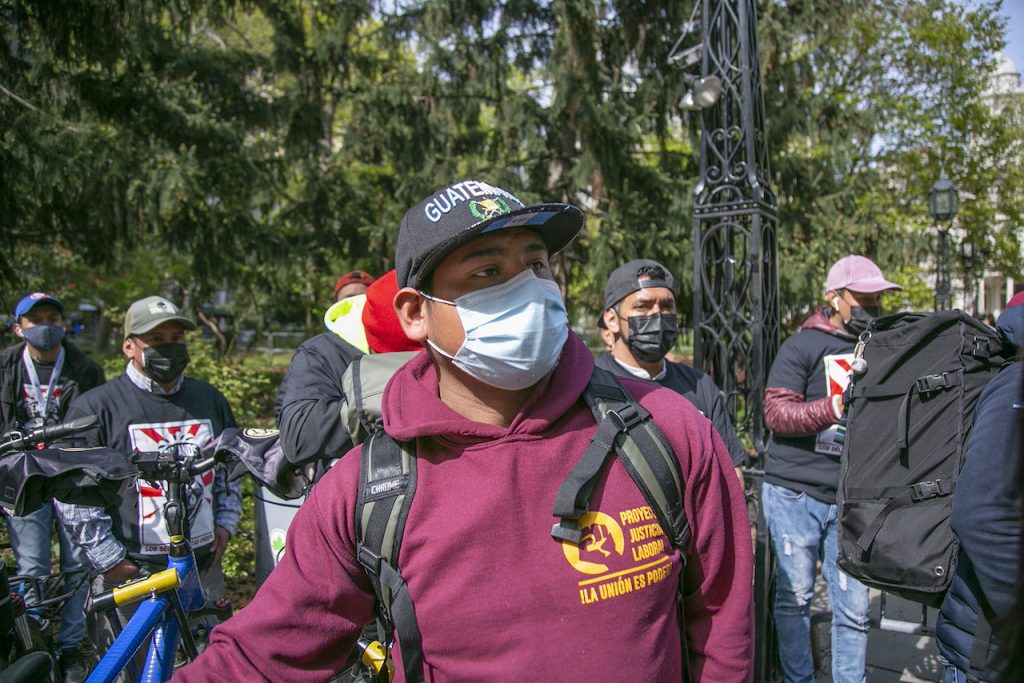
A bill by Rivera would require all restaurants to provide access to bathrooms for delivery workers who are picking up a delivery, except in restaurants where accessing the bathroom would create a health or safety risk, such as walking through the kitchen, food preparation, storage or washing areas.
Mechaca’s bill would require third-party delivery platforms to provide at least one non-bank payment option, and a requirement to pay workers on at least a weekly basis regardless of the payment options offered.
A bill by Brannan would require third-party delivery platforms to allow delivery workers to set maximum distances for orders, and prevent platforms from penalizing workers for rejecting orders outside of their distance limitations.
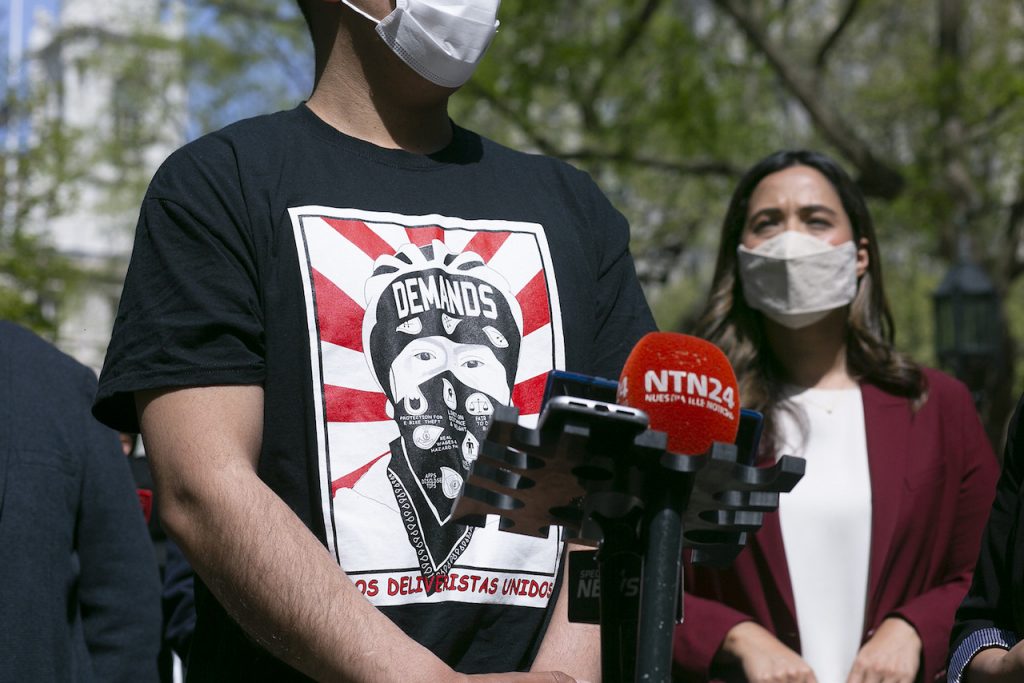
Another Brannan bill would require third-party delivery platforms to supply insulated delivery bags to workers at the platform’s expense.
Under legislation by Lander, the city would be required to establish minimum per-trip payments, excluding gratuities, to third-party food-delivery service workers.
Finally, a measure by Chin would require businesses and restaurants to disclose how much of each gratuity goes to a delivery worker who delivered an order, how gratuities are distributed to delivery workers, and how much of each gratuity is used to compose each delivery worker’s base wage.
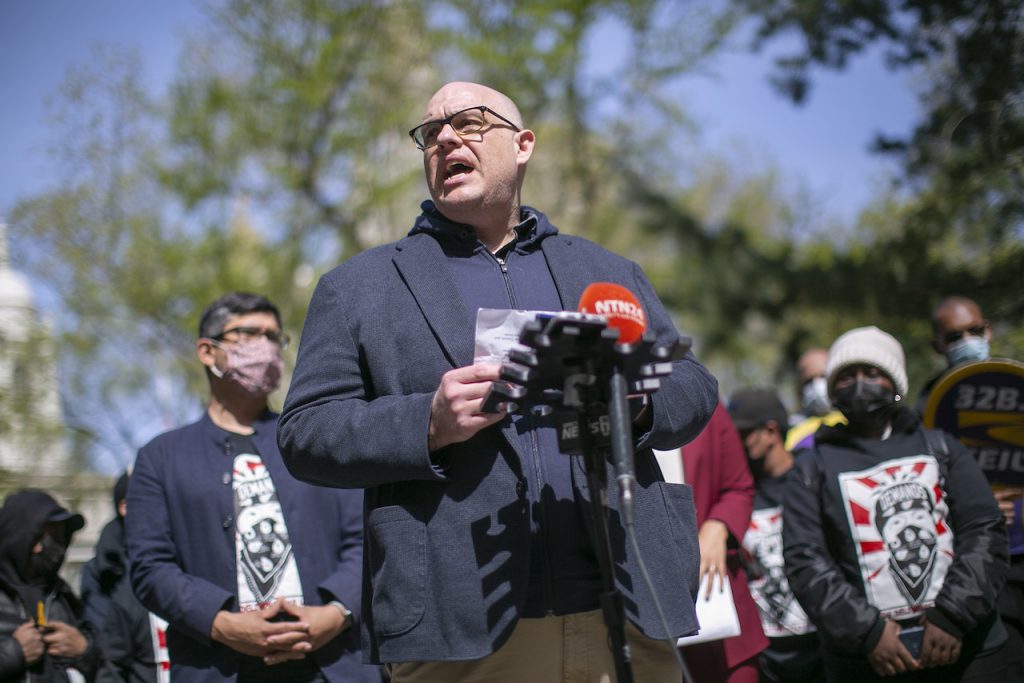
The legislative package was conceived with the help of the Workers Justice Project, an organization fighting for better working conditions for low-wage, immigrant New Yorkers. Thousands of food delivery workers deliver for apps that pay as little as $300 for a week’s worth of 12-hour workdays and do not provide benefits, bikes or part replacements. Additionally, restaurants, which have relied on the work of “deliveristas” in some cases, have refused to provide bathroom access or charged workers to use them.
During the pandemic, delivery workers have been robbed and violently assaulted, targeted for their valuable e-bikes. Several workers have been killed by cars while cycling on streets without protected bike lanes and safe street infrastructure.
“Delivery workers are essential workers,” Councilmember Rivera said. “For over a year, they have put their lives at risk to provide for their families and keep New Yorkers fed throughout the COVID-19 pandemic. They deserve to be treated with respect, public health crisis or not.
“My legislation to ensure access to restrooms, as well as these other bills, is just the first step in winning critical protections for our deliveristas. Our city agencies must step up and ensure these workers are treated with respect and that this great city that they work in is a safe environment for them to do their jobs. I look forward to continuing to work together with the Workers Justice Project, advocates and my colleagues in City Council to deliver justice where it’s long overdue.”
“This is the first step to recognize that we are essential workers,” said Jonan Mancilla, worker leader of Los Deliveristas Unidos and Worker’s Justice Project. “This means a lot to our movement of Los Deliveristas Unidos who are fighting to dignify our labor and to reclaim our humanity. We are finally being listened to by New York City councilmembers who care about us. We hope everyone will support us the same way we supported this city during the pandemic. We will keep uniting and organizing with Worker’s Justice Project until we win everything we deserve. Si, se puede.”
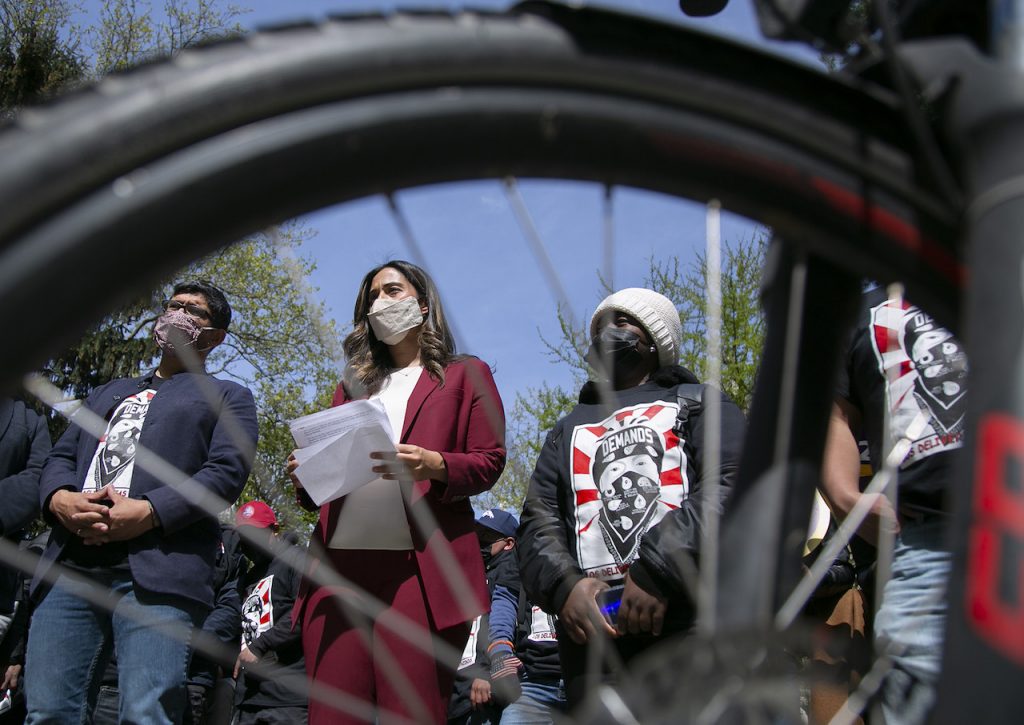
“The first set of bills being introduced today, it’s an important step in recognition of their basic worth for more 80,000 app-based delivery workers,” said Ligia Guallpa, executive director of the Workers Justice Project. “We look forward to working with the New York City Council in delivering full rights and protections to all delivery workers. La lucha sigue [the fight continues] with a powerful worker-led movement that is determined to defend the rights of all workers. La lucha sigue!”
“Delivery workers are some of the least protected workers in New York City and yet we rely on their labor all the time,” said Brannan. “There is still plenty of work left to do, and I look forward to continuing to partner with the Workers Justice Project and elected officials on the city and state level to give these workers the safety, reliability and fairness that they deserve.”
“Many deliveristas earn far less than the minimum wage, even though they perform hard, dangerous, essential work,” Lander said. “To prevent app-based companies like DoorDash, Seamless and Instacart from shortchanging workers, my bill would set minimum pay standards for delivery workers, like we did for Uber/Lyft drivers, to insure that they earn a living wage.”
Chin said, “This package of legislation will create more transparency about how delivery worker pay is calculated by third-party apps, and requires businesses to report on how delivery workers receive tips from customers. So many New Yorkers rely on contactless food delivery; we must ensure that these workers receive the compensation and gratuities that they rightfully deserve.”
Maria Figueroa, director of labor and policy research at the Worker Institute, at Cornell University-School of Industrial and Labor Relations, offered some sobering figures about the dangers and exploitation that deliveristas face.
“Our ongoing survey, which includes a representative sample of more than 500 app-based delivery workers, revealed that about 67 percent of respondents have been denied access to bathrooms at the restaurants where they pick up food,” she said. “Fifty-three percent have been victims of bike robberies, and in one out three of these robberies, the workers were victims of a violent attack. Lastly, 45 percent of the surveyed workers reported pay irregularities, including underpayment or nonpayment of a week’s work.”
Public Advocate Jumaane Williams was a co-sponsor of Rivera’s restroom-access legislation.
“This package is a strong step in the movement for worker justice,” Williams said. “Throughout the last year, food service workers have delivered for us, now we need to deliver justice for them.”

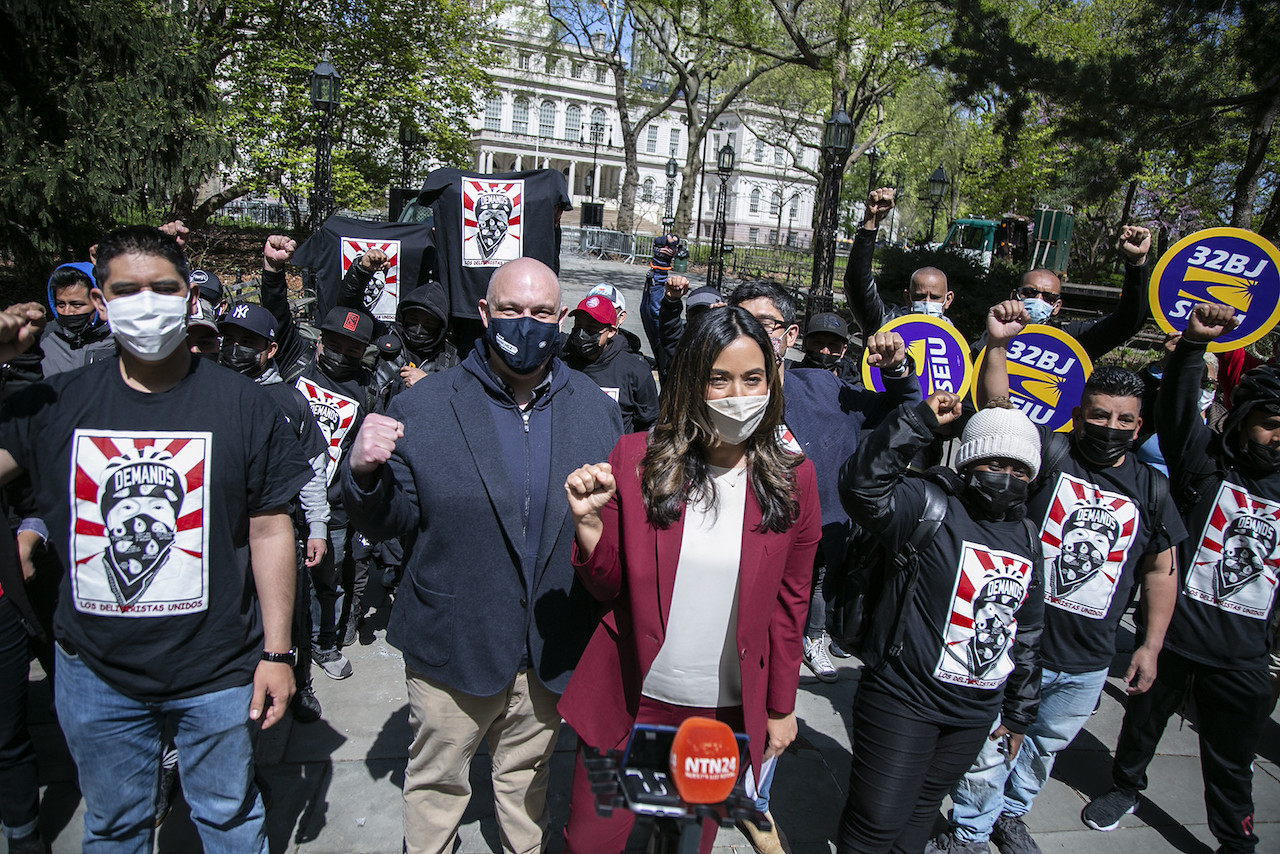
The traffic issues are valid and solvable, and
Let’s get them a decent wage with benefits.
Let’s protect from the criminals.
I am in agreement with JQ LLC. These e-bike are motorcycles. In addition to ignoring traffic regulations on the street, delivery workers on e-bikes ride on crowded sidewalks to get their job done more quickly. They often take a shortcut through Washington Square Park, where bicycle riding is prohibited (let alone motor vehicles). Delivery e-bike riders are dangerous scofflaws.
It’s horrible that they are being robbed by the companies/apps they work for appropriating their tips. And it’s horrible that their e-bikes are stolen. Nonetheless, pedestrians should have the right of way, especially on the sidewalk.
Thanks to Mayor de Blasio, these motor vehicles are allowed to operate unlicensed and uninsured.
Ordering out and having meals delivered is a luxury that many cannot afford. (Obviously, these City Council members can afford it.) I guess delivered meals are essential if you can’t cook for yourself. But why is this legislation being touted as the pandemic ends?
I’d like to see some numbers on how many people have been run down by e-bikes operating outside of traffic regulations. I’ve been forced to step, and in some cases jump, aside as these delivery people rush to beat the clock.
Our city should be safe for everyone.
Speaking of safety, will these delivery men stop running reds and going the wrong way now? Those e-bikes are basically motorcycles.
Those e-bikers are also riding on sidewalks–they are a menace. This is a serious problem that must be dealt with by the police department.